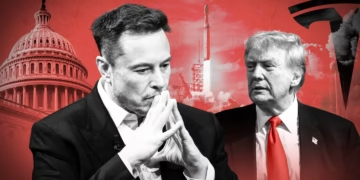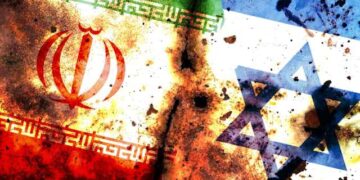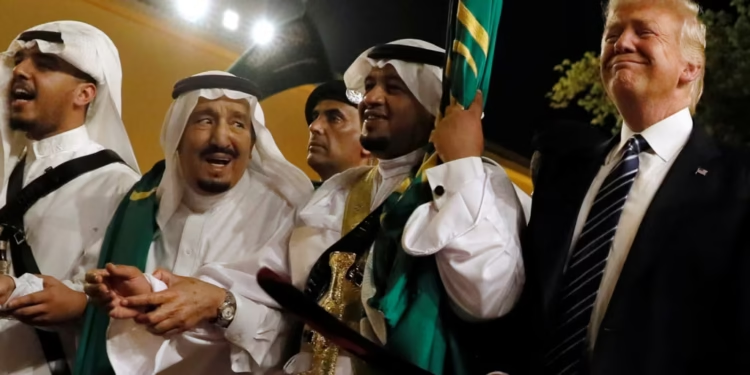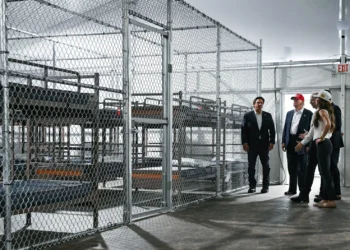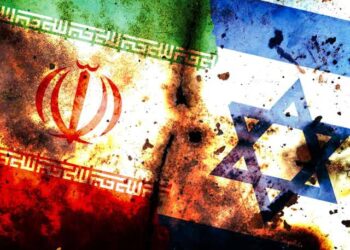President Donald Trump’s administration is considering a significant change in how the US refers to the Persian Gulf, potentially renaming it the ‘Arabian Gulf.’ This move has sparked widespread outrage, particularly among Iranian leaders.
The proposed name change is reportedly being considered ahead of crucial US-Iran nuclear talks and as part of Trump’s Middle East trip. The decision has ignited a heated debate, with implications extending beyond the region.

Key Takeaways
- The US is considering renaming the Persian Gulf to the ‘Arabian Gulf.’
- This move has been met with significant opposition from Iran.
- The decision is linked to ongoing US-Iran nuclear talks.
- The name change is part of a broader Middle East strategy.
- The implications of this change are far-reaching and complex.

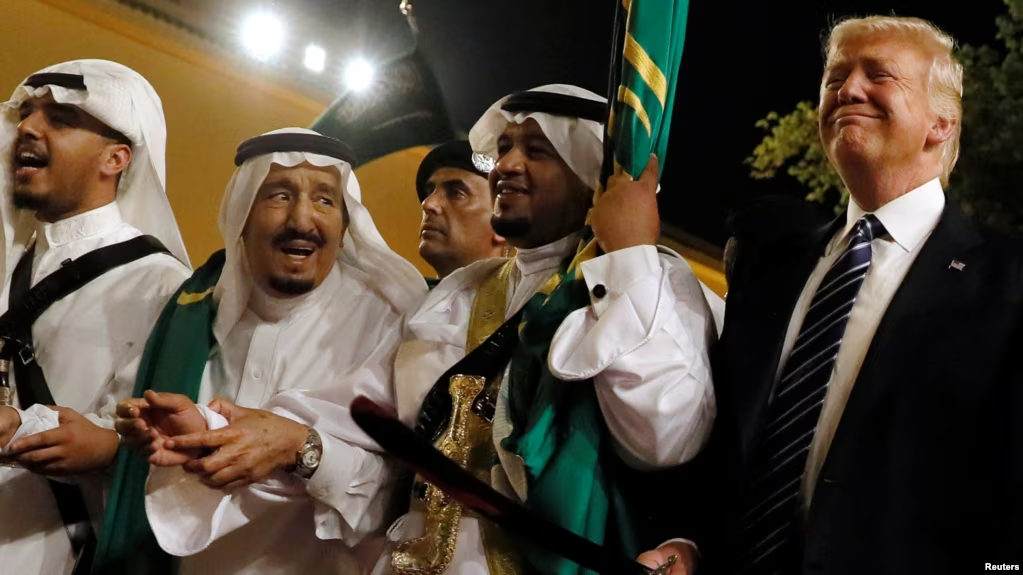
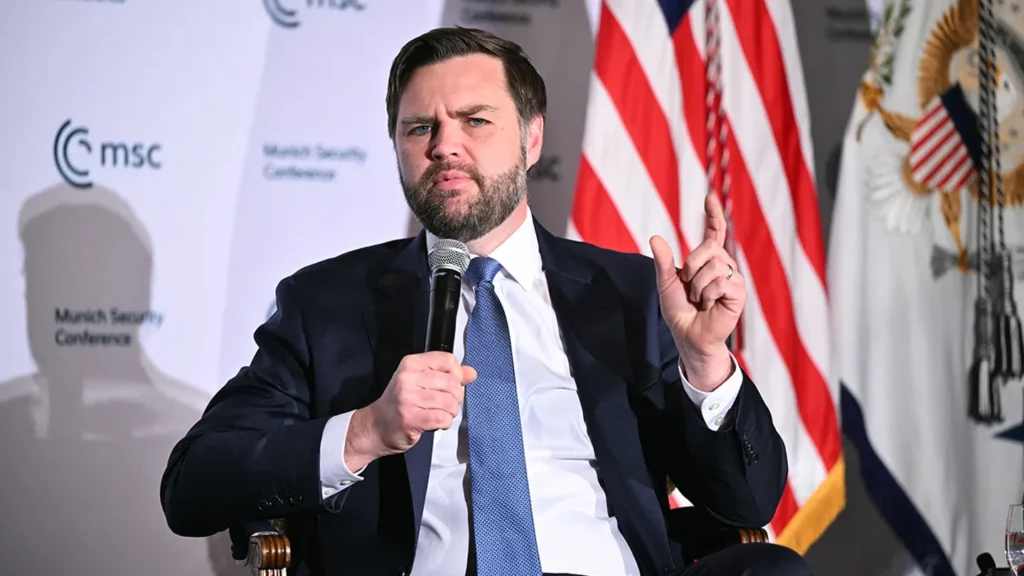
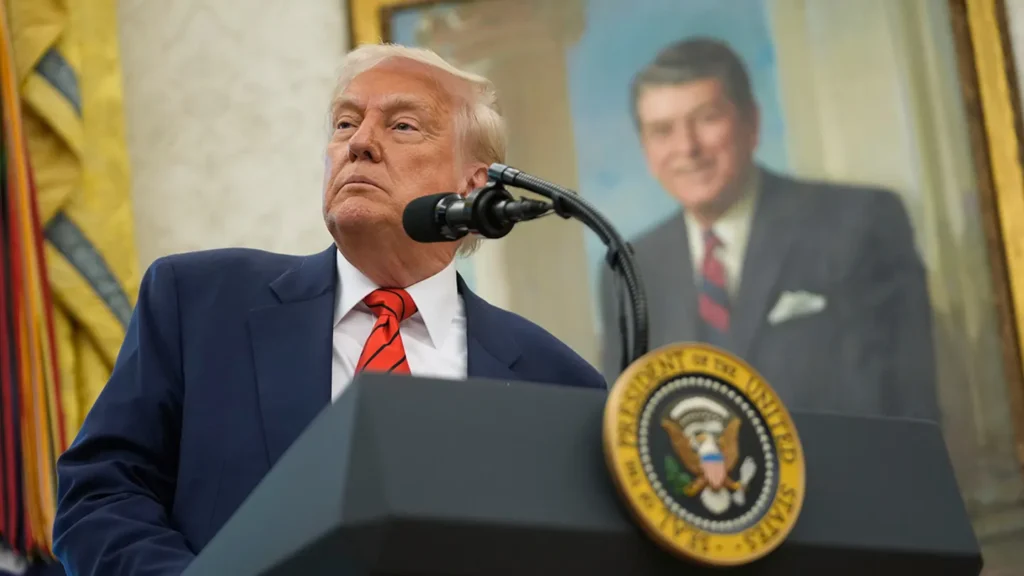
The Persian Gulf Naming Controversy: A Historical Overview
A historical overview of the Persian Gulf naming controversy reveals a complex interplay of ancient origins and modern disputes. The body of water known as the Persian Gulf has been a significant geopolitical location for centuries, with its naming being a point of contention among various stakeholders.
Ancient Origins of the Persian Gulf Name
The term “Persian Gulf” has its roots in ancient times, with references dating back to the Roman era. The name has been widely used since the 16th century, reflecting the region’s historical connection to the Persian Empire. The persistence of this name over centuries underscores its historical significance.
Modern Disputes Over the Waterway’s Designation
In recent times, Arab nations have pushed for the use of “Arabian Gulf” instead of “Persian Gulf,” sparking a heated debate. This dispute is not merely about nomenclature; it reflects deeper geopolitical tensions and regional identities. As noted by a historian, “The name of the gulf is not just a label; it’s a reflection of the region’s identity and history.”
“The name of the gulf is not just a label; it’s a reflection of the region’s identity and history.”
A historian’s perspective
Political Significance of Geographic Naming
Geographic naming is a politically charged issue, as it can influence perceptions and assert territorial or cultural claims. The Persian Gulf naming controversy is a prime example, with the choice of name having implications for regional politics and international relations. The table below summarizes the main arguments on both sides.
| Perspective | Argument |
|---|---|
| Pro-“Persian Gulf” | Historic continuity, reflects connection to Persian Empire |
| Pro-“Arabian Gulf” | Reflects Arab presence and influence in the region |
The debate over the Persian Gulf’s name is a complex issue, intertwining historical, cultural, and political dimensions. Understanding this controversy requires a nuanced appreciation of the region’s history and the geopolitical dynamics at play.

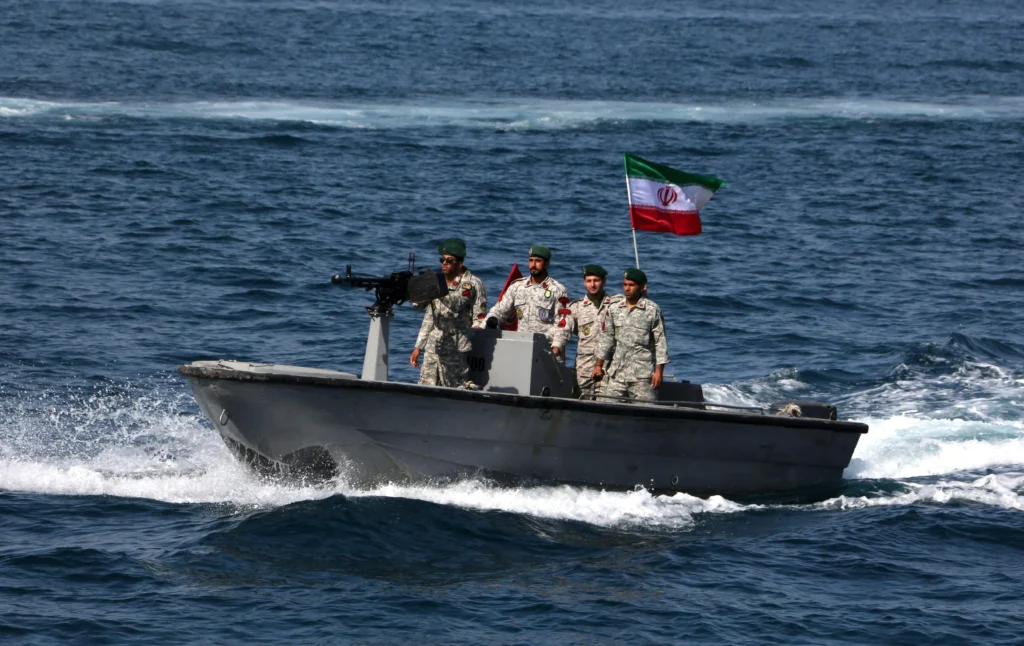
Trump’s Persian Gulf Rename Plan: What We Know So Far
The Trump administration’s plan to rename the Persian Gulf has sparked a geopolitical firestorm, raising questions about the motivations behind this controversial move. As the administration prepares for a significant trip to the Middle East, the implications of this decision are coming under intense scrutiny.
Details of the Proposed Name Change Policy
The proposed policy involves referring to the body of water as the “Arabian Gulf” instead of its historically recognized name. This change is seen as a shift in the U.S. position on the naming dispute, which has been a point of contention between Arab states and Iran. The decision is likely to have significant diplomatic repercussions, potentially affecting ongoing negotiations and regional dynamics.
Timing Ahead of Middle East Trip and Nuclear Talks
The announcement of the name change is timed closely with Trump’s visit to Saudi Arabia and other Gulf states. This visit is expected to focus on strengthening alliances and addressing the Iranian nuclear program. The renaming is seen by some as a gesture of goodwill towards Arab allies, but it risks antagonizing Iran, a key player in the nuclear talks.
- The visit includes meetings with key regional leaders to discuss security and economic cooperation.
- Nuclear talks with Iran are a critical component of the trip’s agenda, with the U.S. seeking to renegotiate the terms of the nuclear deal.
- The renaming of the Persian Gulf is likely to complicate these negotiations, adding a symbolic dimension to the already tense diplomatic efforts.
Official White House Statements and Clarifications
The White House has issued statements indicating that the name change is part of a broader review of U.S. policy towards the region. However, details remain scarce, and the international community is watching closely for further clarification. The reaction from Iran has been swift and negative, with officials denouncing the move as a provocation.

As the situation develops, the international community will be closely monitoring the implications of this decision for regional stability and diplomatic relations.
Persian Gulf vs Arabian Gulf: Understanding the Terminology Debate
Understanding the terminology debate between “Persian Gulf” and “Arabian Gulf” requires delving into the complex historical and geopolitical context of the region. The naming controversy is not merely a matter of semantics; it reflects deeper historical, cultural, and political undercurrents.
Geographic and Historical Arguments for “Persian Gulf”
The term “Persian Gulf” has been used for centuries, with its origins tracing back to ancient times. Historically, the name is linked to the Persian Empire’s influence over the region. Geographically, the gulf has been an important waterway for trade and cultural exchange, with the name “Persian Gulf” being used in numerous historical documents and maps. The International Hydrographic Organization (IHO) recognizes the name “Persian Gulf” as the standard.
Arab States’ Perspective on “Arabian Gulf” Usage
Arab states, particularly those bordering the gulf, have advocated for the use of “Arabian Gulf” or “Gulf of Arabia.” This perspective is based on the region’s Arab cultural identity and the significant role the gulf plays in the economies and histories of these countries. The usage of “Arabian Gulf” is seen as a way to assert the Arab presence and influence in the region.
International Naming Conventions and Standards
Internationally, geographic names are governed by conventions and standards aimed at ensuring clarity and consistency. The United Nations Group of Experts on Geographical Names (UNGEGN) plays a crucial role in standardizing geographic names. While the debate continues, the term “Persian Gulf” remains the most widely recognized and used name in official and international contexts.
Iranian Reaction: Unified Outrage Across Political Divides
In a display of unity rare in Iranian politics, the nation has come together to condemn Trump’s reported move to rename the Persian Gulf. This unified stance transcends the country’s political divides, showcasing a rare consensus among Iranians.
Official Government Responses from Tehran
Iran’s government has been vocal in its opposition to the proposed name change. Iranian Foreign Minister Abbas Araghchi condemned the move as “politically motivated attempts to alter the historically established name.” Official statements from Tehran have consistently emphasized the historical and cultural significance of the Persian Gulf’s name.
Public Protests and Social Media Campaigns
The Iranian public has taken to the streets and to social media to express their outrage. Protests have been organized in major cities, with demonstrators carrying signs that read “Persian Gulf Forever” and chanting slogans against the proposed name change. On social media platforms, campaigns using hashtags like #PersianGulfForever have gained traction, with Iranians from all walks of life participating to show their support for maintaining the historical name.

Historical Iranian Sensitivity to the Gulf’s Name
Iran’s sensitivity to the naming of the Persian Gulf is rooted in history and national identity. The name “Persian Gulf” has been used for centuries, and any attempts to alter it are seen as a challenge to Iran’s cultural heritage. This historical context has contributed to the strong reaction from both the government and the public.
The issue has become a rallying point, uniting Iranians across different political spectrums. The government’s response, coupled with public outcry, underscores the depth of feeling associated with the name of the Persian Gulf.
Regional Implications: How Gulf States View the Naming Shift
The potential shift in nomenclature for the Persian Gulf is eliciting varied responses from Gulf states, influenced by their diplomatic and strategic interests. This divergence in views is largely shaped by each state’s historical, political, and economic contexts.
Saudi Arabia and UAE Perspectives
Saudi Arabia and the UAE, key allies of the United States, have generally supported the use of “Arabian Gulf.” Their stance aligns with the Trump administration’s recent diplomatic efforts in the region, which have seen significant cooperation on security and economic issues. The proposed name change is seen as a gesture of solidarity with these Gulf Arab states.
Smaller Gulf Nations’ Positions
Smaller Gulf nations, such as Kuwait and Bahrain, are more cautious in their response. While they maintain good relations with both the US and other Arab states, their primary concern is maintaining regional stability. They are likely to align their stance on the naming issue with the prevailing regional consensus.
Regional Alliances and Tensions Affected by the Naming
The naming dispute has the potential to impact regional alliances and tensions. The shift could be perceived as a move that exacerbates existing divisions between Arab states and Iran. The US’s diplomatic efforts in the region, including nuclear negotiations with Iran, might be complicated by this controversy, as it touches on sensitive issues of national identity and sovereignty.
In conclusion, the reaction to the proposed name change reflects the complex geopolitical landscape of the Gulf region. Understanding these dynamics is crucial for assessing the broader implications of Trump’s Gulf diplomacy.
Impact on Upcoming US-Iran Nuclear Negotiations
As US-Iran nuclear negotiations approach, the controversy over the Persian Gulf’s name adds a complex layer to diplomatic efforts. The already tense relations between the US and Iran are poised to become even more strained with the introduction of the naming dispute.
Current Status of Nuclear Talks
The US-Iran nuclear talks have been stalled due to several unresolved issues. European diplomats are urging Iranian leaders not to “lose it” over Trump’s actions, fearing it could complicate nuclear talks. The current status of these negotiations is precarious, with both sides showing little willingness to compromise.
How the Naming Dispute Could Complicate Diplomacy
The naming dispute has the potential to further complicate diplomatic efforts between the US and Iran. By renaming the Persian Gulf, Trump’s administration risks alienating Iranian diplomats who are already under pressure to make concessions. This move could be seen as a provocation, potentially derailing the negotiations.

Expert Assessments of Diplomatic Fallout
Experts warn that the naming controversy could have significant diplomatic fallout. The tension it creates may spill over into other areas of negotiation, making it even more challenging to reach a mutually acceptable agreement on nuclear issues. Diplomats are cautioning that this issue could become a major obstacle in the negotiations.
The impact of the Gulf renaming on US-Iran relations is a critical factor to consider in the upcoming nuclear talks. A strained relationship could jeopardize the success of these negotiations, potentially leading to further instability in the region.
Trump’s Middle East Policy: Analyzing the Strategic Motivations
The Trump administration’s controversial decision to rename the Persian Gulf has sparked intense debate, revealing deeper strategic motivations in Trump’s Middle East policy. This move is seen as part of a broader strategy that involves aligning with Gulf Arab allies, exerting pressure on Iran, and considering domestic political implications.
Alignment with Gulf Arab Allies
Trump’s decision to rename the Persian Gulf to the ‘Arabian Gulf’ is perceived as a gesture of goodwill towards Arab nations, particularly Saudi Arabia and the UAE. This alignment is part of a larger effort to strengthen ties with these countries, potentially leading to concessions regarding their relations with Israel. The move is seen as a strategic maneuver to bolster regional alliances and counterbalance Iranian influence.
Pressure Campaign Against Iran
The renaming controversy is also viewed as part of a pressure campaign against Iran. By adopting the term ‘Arabian Gulf,’ the Trump administration is signaling its support for the Arab perspective on the waterway’s nomenclature, potentially complicating diplomatic relations with Tehran. This move is consistent with the administration’s broader strategy of exerting maximum pressure on Iran through economic sanctions and diplomatic isolation.
Domestic Political Considerations
Domestic political considerations also play a role in the Trump administration’s decision-making process. The renaming issue resonates with certain domestic constituencies, particularly those with strong pro-Israel or anti-Iran sentiments. By taking a firm stance on the Gulf’s nomenclature, the administration may be seeking to galvanize support among these groups.
| Strategic Motivation | Description | Implications |
|---|---|---|
| Alignment with Gulf Arab Allies | Renaming the Persian Gulf to ‘Arabian Gulf’ as a gesture of goodwill towards Arab nations. | Strengthening regional alliances and counterbalancing Iranian influence. |
| Pressure Campaign Against Iran | Adopting the ‘Arabian Gulf’ term to signal support for the Arab perspective, complicating diplomatic relations with Tehran. | Consistent with the administration’s broader strategy of exerting maximum pressure on Iran. |
| Domestic Political Considerations | Renaming issue resonates with domestic constituencies with pro-Israel or anti-Iran sentiments. | Galvanizing support among these groups through a firm stance on the Gulf’s nomenclature. |
Historical Precedents: Previous US Positions on the Gulf Naming Dispute
Understanding the historical context of US references to the Persian Gulf is crucial in grasping the current controversy surrounding its naming.
The US has a long-standing practice of referring to the body of water between Iran and the Arabian Peninsula, with the naming convention being a point of contention. The historical context provides valuable insights into the current dispute.
State Department Historical Usage Guidelines
The US State Department has historically used the term “Persian Gulf” in official documents and communications. This practice is rooted in historical and geographic accuracy, acknowledging the region’s ancient heritage and the name’s widespread international use.
- The term “Persian Gulf” has been used consistently in diplomatic correspondence.
- Official documents and maps published by the State Department adhere to this naming convention.
Military and Naval References Throughout US History
The US military, particularly the Navy, has a mixed record in its references to the Gulf. While official documents often used “Persian Gulf,” some military communications and maps have also utilized “Arabian Gulf,” especially in contexts involving coalition operations with Arab states.
Previous Administrations’ Approaches to the Naming Issue
Previous US administrations have generally adhered to the “Persian Gulf” nomenclature, aligning with international usage and the principles of geographic accuracy. However, there have been instances where flexibility was shown, particularly in diplomatic and military cooperation contexts.
Key aspects include:
- Consistency with international naming conventions.
- Flexibility in specific diplomatic or military contexts.
Conclusion: Geopolitical Symbolism and Real-World Consequences
The naming dispute over the Persian Gulf reflects deeper middle east geopolitical tensions and has significant implications for regional stability and diplomacy. The proposed rename to ‘Arabian Gulf’ by Trump’s administration has sparked outrage, highlighting the complex web of historical, cultural, and political factors at play.
The controversy surrounding Trump’s Gulf diplomacy efforts underscores the challenges in navigating the region’s sensitive geopolitical landscape. As the US navigates its relations with Iran and other Gulf states, the naming dispute serves as a symbol of the broader tensions and competing interests in the region.
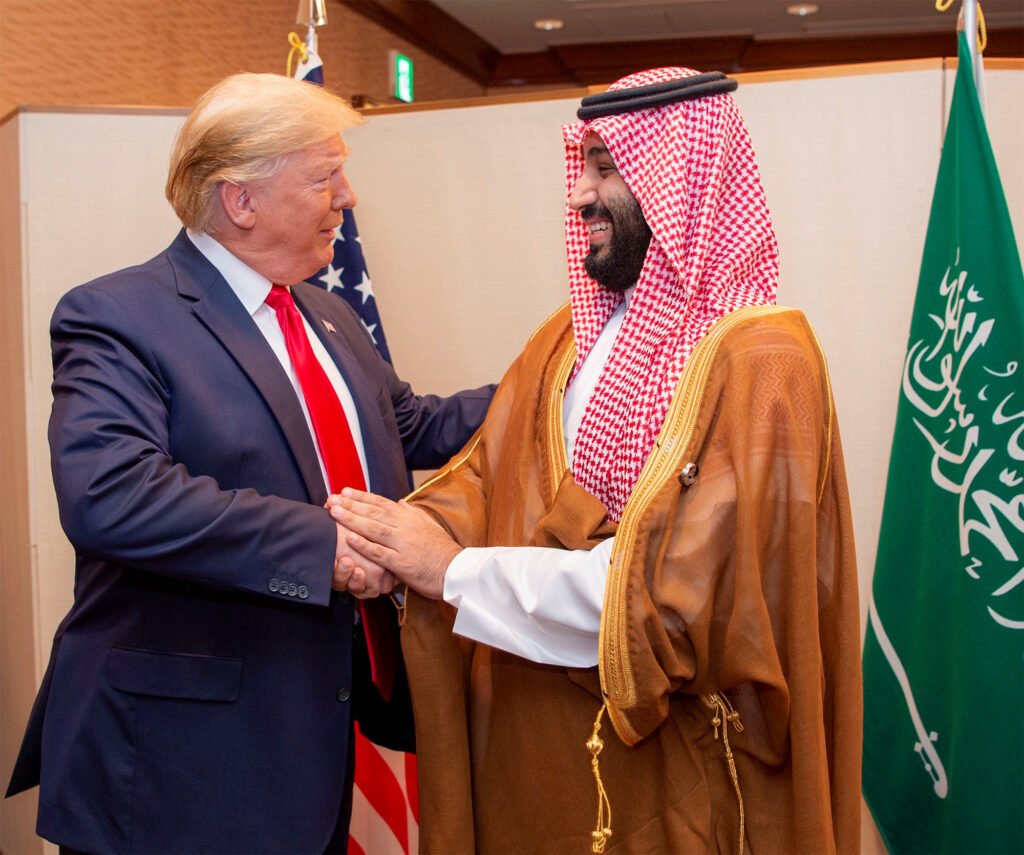
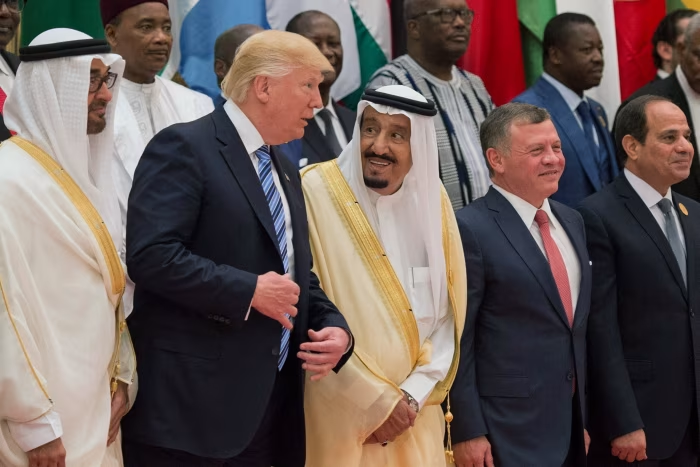
FAQ
Why is Trump planning to rename the Persian Gulf?
Trump’s plan to rename the Persian Gulf to the Arabian Gulf is part of his broader Middle East policy, which includes a trip to the region and nuclear talks with Iran. The renaming is seen as a move to align with Gulf Arab allies.
How are Iranians reacting to the Gulf name change?
Iranians have expressed unified outrage across different political divides, with official government responses, public protests, and social media campaigns. The reaction is rooted in historical Iranian sensitivity to the Gulf’s name.
What’s the difference between Persian and Arabian Gulf?
The terms “Persian Gulf” and “Arabian Gulf” refer to the same body of water, but the names reflect different historical, geographic, and political perspectives. “Persian Gulf” is the name with ancient origins and is used internationally, while “Arabian Gulf” is preferred by some Arab states.
Is Arabian Gulf the correct name?
The correctness of the name depends on the context and perspective. Internationally, “Persian Gulf” is the most widely used and recognized name, supported by historical and geographic arguments.
What is the impact of the Gulf renaming on US-Iran relations?
The naming dispute could complicate diplomatic efforts between the US and Iran, particularly in the context of nuclear negotiations. Experts assess that the controversy may add to the challenges facing nuclear diplomacy.
How do Gulf states view the proposed naming shift?
Gulf states have varying perspectives on the naming shift, with some like Saudi Arabia and the UAE potentially supporting the change, while others may be more neutral or opposed.
What are the historical precedents for the US position on the Gulf naming dispute?
Historically, the US State Department has guidelines for using “Persian Gulf,” and there are references to this name in military and naval contexts throughout US history. Previous administrations have generally followed this naming convention.
What are the strategic motivations behind Trump’s Middle East policy?
Trump’s policy, including the renaming of the Persian Gulf, is motivated by a desire to align with Gulf Arab allies, pressure Iran, and potentially by domestic political considerations.









